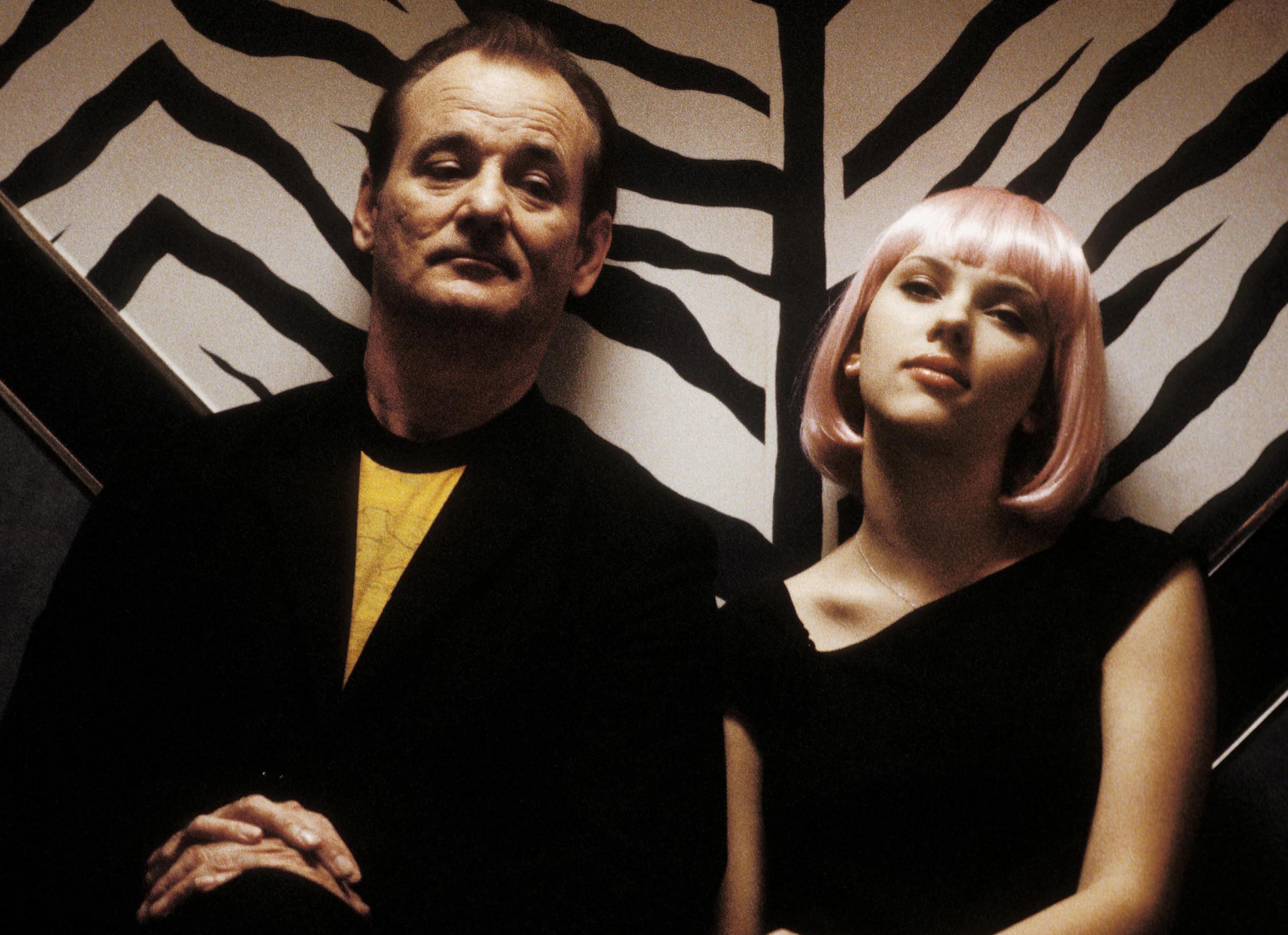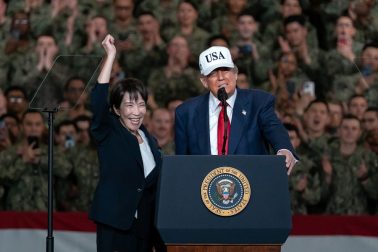The postponed 2020 Tokyo Olympics have not been without controversy.
After being delayed for a year, a survey commissioned in May by the Asahi Shimbun newspaper revealed that 83 per cent of those polled were not in favour of the event going ahead in 2021, as COVID-19 cases soared and vaccine rates remained low.
One of the few pleasant side-effects of the pandemic in Japan was the lessening of air pollution which means that iconic Mount Fuji (the country’s highest peak) is now visible from the city on the increasingly frequent smog-free days.
As tourist guides note, Tokyo (formerly Edo) is a blend of the old and (mainly) new, home to the futuristic vistas that inspired the likes of Blade Runner, and the serene environs of Imperial Palace, built amongst the picturesque remains of the centuries-old Edo Castle.
British audiences have experienced Japan at a distance through numerous documentary seasons and celebrity-led travelogues over recent years – and in the acclaimed BBC2 drama Giri/Haji (2019) which delved into Tokyo’s Yakuza criminal underworld.
Here are ten selections of motion pictures set in and around the city.
The Outsider (2018) Netflix
Star Jared Leto (Suicide Squad, Dallas Buyers Club) left no cliché unturned in this extremely unlikely story of a westerner rising to become head of a yakuza clan.
Leto’s Nick Lowell is a former US marine captain who deserts under suspicion of war crimes then falls in with Tokyo gangsters before enduring a long stint in an Osaka penitentiary prior to his release in 1954.
The yakuza find a useful role for Lowell as a token gaijin (outsider), which he then uses as a steppingstone to become a fully-fledged crime lord. Shot in Tokyo and Osaka, The Outsider looks good and boasts some effective action sequences, although Leto’s onscreen narcissism is (as usual) a drag.
You may recognise a few familiar faces amongst the Japanese cast, including Tadanobu Asano (Battleship, Silence) and Shiori Kutsuna (Deadpool 2).
Ghost in the Shell (2017) Netflix, Amazon Rent/Buy
The highly controversial decision to cast Scarlett Johansson as the cyborg counter-terrorism expert Major Mira Killian/Motoko Kusanagi in a live action version of Masamune Shirow’s manga classic overshadowed the movie after claims of whitewashing.
Strangely enough, the reaction to the casting of Johansson wasn’t a particular bugbear in Japan itself (said to be something to do with beauty standards in the country, which I have no intention of getting into), it was the divergence from Shirow’s original Ghost in the Shell that caused more blowback.
The picture tends towards the generic, but the retro-futurist Tokyo-style city is impressive.
Ghost also features a rare Hollywood role for deadpan cult director/actor ‘Beat’ Takeshi who, between helming mordant crime thrillers was also the host of the popular Japanese gameshow Takeshi’s Castle (1986-1990), broadcast in the UK most recently in 2019 with Jonathan Ross providing voiceover.
The Wolverine (2013) Disney+, Amazon Rent/Buy
Whereas most superhero movies tend to ricochet from location to location like a pinball machine with ADHD, The Wolverine is rare in chiefly confining itself to Tokyo and other cities of the Japanese archipelago.
The plot? Pretty much the same old, same old as Logan (Hugh Jackman) is stripped of his powers and faces off against a former acquaintance he met when Nagasaki was nuked by B-52 bombers in August 1945.
There’s a good sense of place, some humorous touches, and a thrilling bullet train fight to balance the usual super-heroic shenanigans.
James Mangold is currently directing Indiana Jones 5.
Kill Bill Vol 1 (2003) Netflix, Amazon Rent/Buy
My personal highlight of the first of Quentin Tarantino’s two Kill Bill movies was the confrontation between The Bride (Uma Thurman) andTokyo yakuza boss O-Ren Ishii (Lucy Liu) and her elite team of assassins, the Crazy 88.
O-Ren has an interesting back story. Her character’s parents were killed by the yakuza, and as an orphan she was shunned for being of mixed Chinese-Japanese-American ancestry. O-Ren’s successful quest for respect raises the stakes in the intense House of Blue Leaves fight sequence with the equally wronged Bride.
Liu’s fate brings to mind the long-running argument about the best way to eat a boiled egg. Do you cut the top off or crack the shell with a spoon?
The Last Samurai (2003) Netflix, Amazon Rent/Buy
The ‘White Saviour’ trope is on full display in Ed Zwick’s epic take on the 1877 Satsuma Rebellion of recalcitrant Samurai against the Meiji Restoration, when, after centuries of the Tokugawa shogunate (1603 to 1868), power returned to the Japanese Emperor and his Westernised supporters/advisers.
After being hired to train the Imperial Army, Tom Cruise’s boozy/disillusioned Civil/Indian War veteran Captain Nathan Algren is captured by Lord Moritsgu Katsumoto (Ken Watanabe), the honourable leader of the rebellious Samurai.
Naturally enough, Cruise finds new purpose as he develops empathy with the Samurai code and becomes a key advisor to Katsumoto, aiding the vastly outnumbered band in a climactic battle with the Imperial Army, where rifles and Gatling guns face off against the warriors’ swords, spears, and arrows.
Watanabe is very good, but underused, as Cruise (big surprise) dominates the movie.
Quirkier than expected support is provided by Billy Connolly and Timothy Spall.
Lost in Translation (2003) Amazon Rent/Buy
A melancholic comedy-drama and reflection on relationships between the sexes, Sofia Coppola’s Lost in Translation is a fine movie – if you are in the mood for its deliberate pace and occasional longueurs.
Bill Murray’s performance as jaded movie star Bob Harris (no relation to ‘Whispering’ Bob Harris from The Old Grey Whistle Test) gave him a second career in indie movies, whilst co-star Scarlett Johansson (again) gained critical kudos for her nuanced turn as recent Yale graduate Charlotte.
The pair meet when staying at the swanky Park Hyatt Tokyo and form an unlikely bond, leading to an exploration of the city’s nightlife and a sharing of intimate confidences. And as no English language movie set in Tokyo seems to be without one, there is a karaoke scene; this time Murray warbles Roxy Music’s 1982 hit More Than This.
Johansson does rather better (not difficult, tbh) with her stab at Brass in Pocket by The Pretenders.
Mr. Baseball (1992) Amazon Rent/Buy
Fred Schepisi’s amiable culture clash comedy Mr Baseball is the first of three pictures I’ve chosen that star the very excellent Ken Takakura, known as ‘Japan’s Clint Eastwood’.
Tom ‘Magnum’ Selleck plays obnoxious aging baseball star Jack Elliot, who’s traded without his say so to the Chunichi Dragons, in need of a heavy hitter for a crucial game against Tokyo’s Yomuri Giants.
To the actor’s credit, Selleck’s Elliot is a thoroughly unlikeable character throughout much of the film, but (as expected) he learns the value of teamwork from his fellow players and begins to respect stoic team manager, and father of his new girlfriend, Uchiyama (Ken Takakura).
All as expected, but I have a soft spot for the picture, which provides a useful guide to Japanese mores and morays in the 1990s.
Incidentally, baseball, Japan’s most popular spectator and participatory sport, was popular in the Land of the Rising Sun long before the US occupation after WWII, as it was introduced to the country back in 1872.
Black Rain (1989) Amazon Rent/Buy
Takakura shines again in Ridley Scott’s crime thriller, playing to type as a stoic Tokyo detective Matsumoto, assigned to put up with NYPD enfant-terrible Nick Conklin (a mullet sporting Michael Douglas) and his more agreeable sidekick Charlie Vincent (Andy Garcia) as they pursue a Yakuza gangster who slipped through their fingers at the airport handover.
Scott’s Tokyo recalls his earlier Blade Runner; there are decent action scenes and much needed light relief when Garcia’s Vincent does his karaoke turn, aided by a game Takakura.
Once again, a western gaijin (in this case Douglas) develops a new-found appreciation of Japanese culture and code of honour. The film’s title stems from the ‘Black Rain’ of nuclear fallout after the US bombing of Hiroshima in 1945.
Mishima: A Life in Four Chapters (1985)
Eccentric Japanese writer Yukio Mishima’s (Ken Ogata) failed 1970 insurrection and grisly suicide by seppuku at the Tokyo HQ of the Japanese Self Defence Forces provides the climax to Japanophile Paul Schrader’s arthouse biopic.
Life imitated art in the case of Mishima, as the previous year the author published the novel Runaway Horses where the protagonist Isao Linuma also instigates an unsuccessful coup and ends his life in ritual suicide.
Schrader weaves dramatized scenes from Mishima’s other major works throughout the film, which has yet to be officially shown in Japan. Phillip Glass composed a typically hypnotic score for the picture.
In Kevin Jackson’s 2004 appreciation Schrader on Schrader and Other Writings, the director stated that in terms of his best work ‘as a screenwriter it’s Taxi Driver, but as a director it’s Mishima.’
The Yakuza (1974) Amazon Rent/Buy
One of my favourite motion pictures and to my mind Robert Mitchum’s finest, this multi-layered crime thriller provides well-staged action, world weary humour and pathos in equal measure.
Ex-US Army MP Harry Kilmer (Mitchum) returns to Tokyo to repay a favour to dodgy ex pat businessman Tanner (Brian Keith) and attempt winning over the love of his life, Eiko (Keiko Kishi).
Eiko refused to marry Kilmer due to the strictures of her ex-yakuza ‘brother’ Ken (Takakura), outraged to see the pair living together after returning from years stranded on a remote Pacific island at the end of WWII.
Sydney Pollack’s movie is much more than a simple gangster movie, one which ends on a truly touching note – at least for old-fashioned male viewers. The Yakuza’s quality is evident in an elegiac script by Paul Schrader (again) and Robert Towne from Leonard Schrader’s story.







Comments